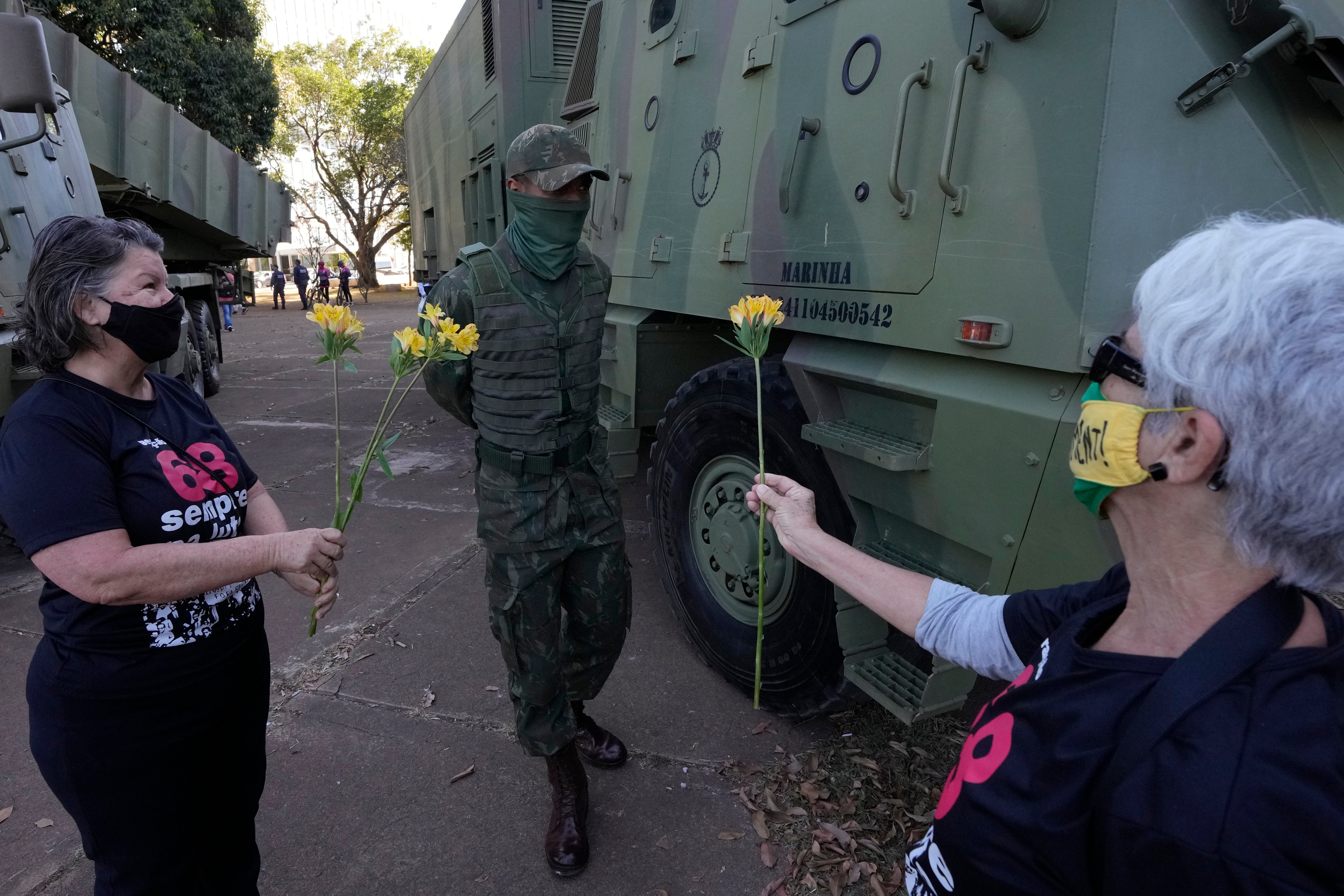I’ve been forced to watch my family in Brazil suffer throughout the pandemic from LA
My aunt, a doctor in the country’s public health system, retired after seeing so many people die of Covid in front of her and then stopped leaving the house entirely. On the same day I got my vaccine in LA, my 74-year-old mother was turned away from hers because of shortages

When the pandemic started, I was alone and doubly away from home — neither in the place where I live, New York, nor the place where I’m from, Brazil.
My workplace had transferred me to Los Angeles, which was supposed to last for three months. Three weeks after my arrival, however, the city shut down, I got Covid, and my job went into furlough. New York was falling, my heart was breaking, and my mind was crazed, so I decided to stay. As I lived transient for the next six months in LA, my family was my constant, and so was Brazil.
The last time I was in Brazil was during the last election, when Jair Bolsonaro, a former military captain, became president. He was voted in despite his anti-democratic statements, and despite a campaign that attacked women, the working class, the LGBT community, and the idea of climate change. The evening after that election, a friend and I sulked over drinks. I was particularly concerned about allegations of corruption during vote counts. “The reality is that when you vote for someone with such an inhumane platform, you don’t care about corruption anyway,” my friend said. “But we light-skinned, educated, middle-class people are going to be okay. It’s the poor we are in real trouble.” Considering the poor are in the majority in Brazil, that was a worrying — and true — prediction.
In the two countries I call home, I’m perceived completely differently. In the one I was born, I’m white middle-class; and in the country I choose to live, I am a brown immigrant who hails from a continent of “bad people”.
As I spoke with my family in Brazil throughout the pandemic, the differences between our situations were just as stark. I talked about riots, immigration issues, and the growing homeless situation in Venice Beach in the family WhatsApp group. They talked about cuts to the education budget, the newest minister without credentials for the job, the growing number of military in the government, and the Amazon burning.
This year in late March, while discussing our vaccine situation, I mentioned offhandedly that I was waiting for the Johnson and Johnson shot. I liked the idea of only having to take one dose. As soon as I said it, I was bombarded with messages — some caring, but most incensed. I was called selfish, which shocked and hurt me. I stopped, took a breath and then walked away from the group chat.
In stating my preference for the Johnson and Johnson shot, I’d forgotten my own privilege. I wanted a particular brand of vaccine for convenience; my family wanted a vaccine, any vaccine.
Two weeks later, the same day I got the Johnson shot, my 74-year-old mother was turned down at the appointment scheduled for her second dose because of vaccine shortages.
Bolsonaro’s rise to power was based on him being a political outsider, the only one without proven ties to the frequent corruption scandals that made Brazilians so distrustful of their existing government. He effectively promised to “drain the swamp”. But in the middle of the humanitarian crisis of the Covid pandemic, a scandal broke out over the purchase of vaccines. The government, after stopping several purchases in order to further haggle over costs, had made a deal to buy an unapproved vaccine from India. When documents were sent to congressional investigators, it showed that Brazil paid 10 times more than the originally quoted price for India’s Covaxin vaccine. All this, while the president refused to bring in basic public health measures and claimed masks were ineffective. Half a million people have died in Brazil, one of the hardest-hit countries in the world, during the pandemic. The aforementioned investigation is ongoing but promises to look into the political decisions that led to such grave mishandling of a crisis. The chair of the committee has even suggested he wants to indict Bolsonaro for murder.
There is the big picture, and then what it looks like from the ground. My family in Brazil updated me as my aunt, who was a doctor in the country’s public health system, retired after seeing so many people die of Covid in front of her and then stopped leaving the house entirely.
A cousin who went to a private hospital with an infection was put in the Covid ward because of a high fever, got infected, and almost died as she went into surgery.
My father, who is 75, to this day takes his clothes off after work and puts them in the bucket of soapy water next to the door. His wife called me asking if I could reason with him after he tried to stop her from attending the cremation of her own father who had died of Covid days earlier.
Bolsonaro has denied any misconduct and said, among other things, that he had no knowledge of the Covaxin deal which went awry. “I’m incorruptible,” he stated recently. No investigation or democratic inquiry will convince him otherwise. In so many ways, he reminds me of Donald Trump.
I hope for something better for Brazil after Bolsonaro. I hope there will be consequences for what he has done. And I hope, more than anything, to be able to see my family again soon.
Join our commenting forum
Join thought-provoking conversations, follow other Independent readers and see their replies
Comments
Bookmark popover
Removed from bookmarks